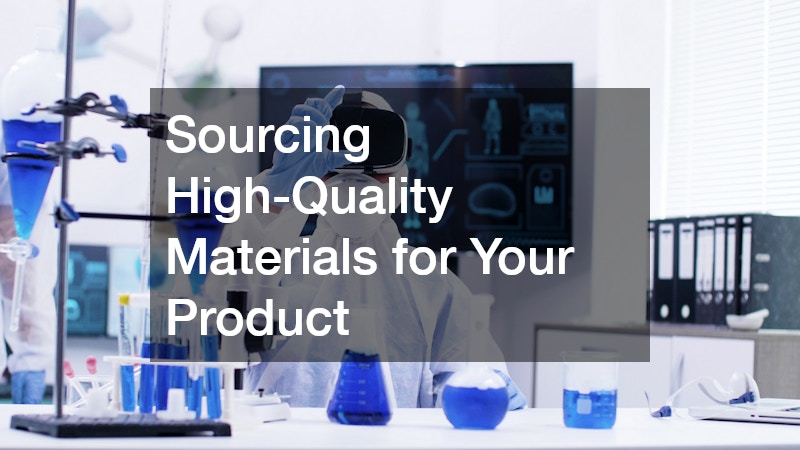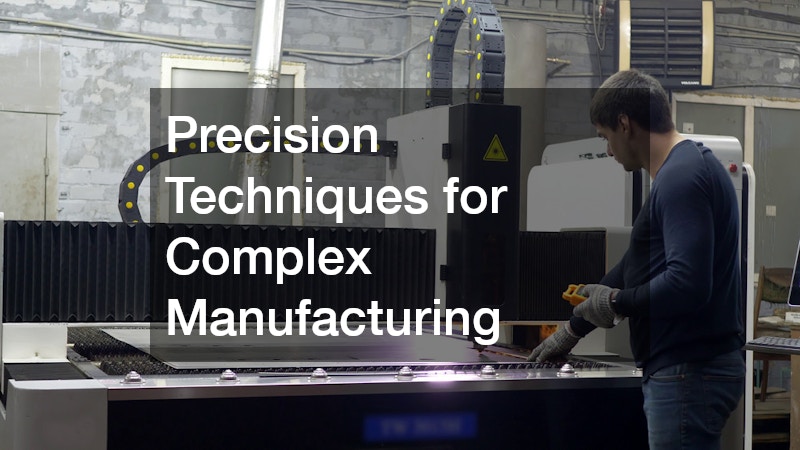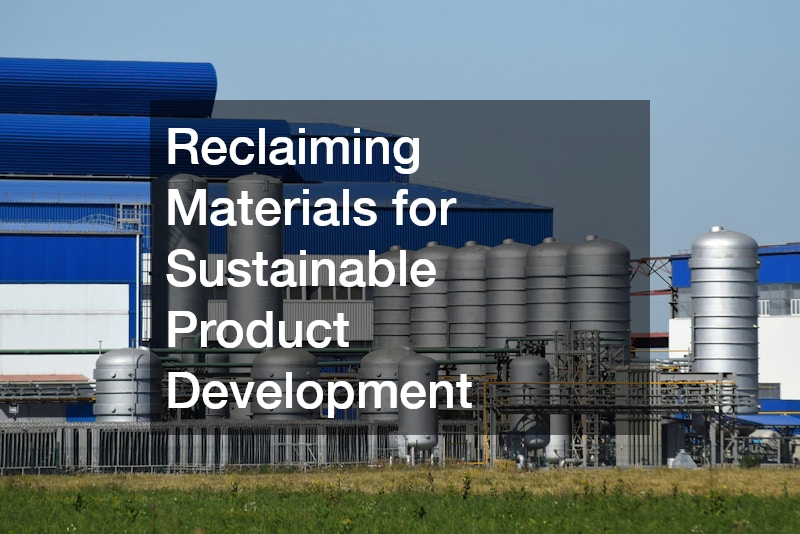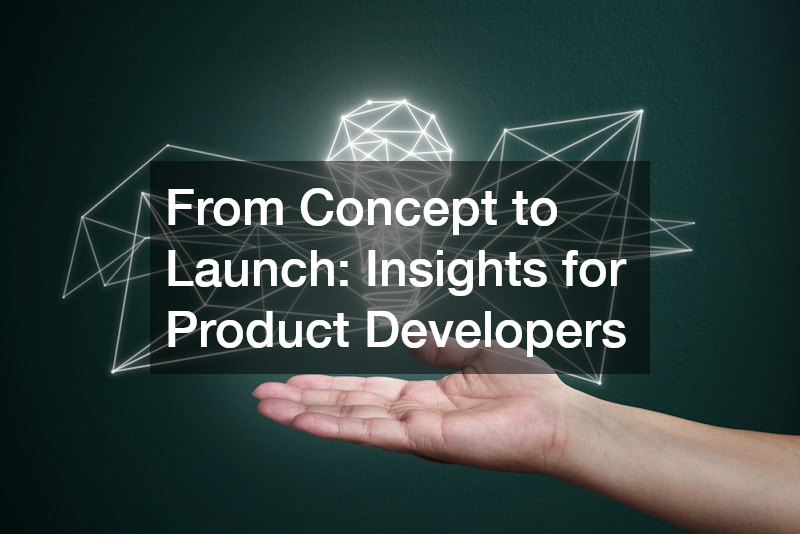Bringing a new product to market is an exciting but complex journey that requires careful planning, strategic decision-making, and meticulous execution. For product developers, the path from concept to launch involves not only designing an innovative solution but also ensuring it meets market demands, regulatory requirements, and sustainability standards. The process demands a delicate balance between creativity and pragmatism. While the thrill of seeing an idea materialize is immense, it is the preparation and attention to detail that determine whether a product succeeds or falls short.
Product engineers face numerous challenges, from sourcing reliable materials to ensuring environmental safety and optimizing production processes. Each stage of development, from initial design to mass production, carries its own risks and opportunities. For instance, understanding how a product interacts with its environment, testing its durability under extreme conditions, and analyzing potential failure points can save significant time and resources down the line. Moreover, collaborating with the right partners, whether they are chemical suppliers, fabrication experts, or recycling specialists, can streamline operations and enhance product quality.
This blog will guide innovators through the essential steps of taking a concept from an initial idea to a fully launched product. We will explore practical insights into environmental assessment, material sourcing, precision manufacturing, testing, packaging, production scaling, and leveraging local initiatives for business growth. By following these strategies, developers can minimize risk, ensure quality, and position their products for market success.
Understanding Environmental Impacts of New Products
Product engineers must prioritize understanding the environmental impacts of their products from the outset. This begins with conducting comprehensive ecotoxicology studies to assess the potential harm new products might pose to ecosystems. These studies are crucial in guiding developers toward greener alternatives and ensuring compliance with environmental regulations. The insights gained from ecotoxicology studies can also shape the development of more sustainable materials and processes.
The implications of overlooking environmental impacts can be severe, leading to irreparable harm and potential product recalls. Responsible product developers dedicate resources to exploring eco-friendly options that do not compromise on performance. By championing sustainable innovation, they gain an edge in the competitive market, appealing to a growing consumer base that values sustainability.
Collaboration with environmental experts and agencies can further enhance a developer’s approach to sustainability. Such alliances ensure the integration of the latest research results into product development. This collaborative mindset allows developers to remain at the forefront of eco-conscious design, paving the way for industry-wide transformation.

Sourcing High-Quality Materials for Your Product
One of the primary concerns for product developers is the sourcing of high-quality materials. Engaging with specialty chemical suppliers can provide access to innovative materials that enhance product quality while minimizing environmental impact. Such suppliers often offer materials that are not only high-performance but also biodegradable or derived from renewable sources.
Specialty chemical suppliers play an essential role in guiding developers toward materials that meet precise specifications. Whether it’s developing a new composite for increased strength or finding an eco-friendly alternative to a prevalent substance, these suppliers are key to a sustainable supply chain. The collaboration ensures materials adhere to both industry standards and ecological considerations.
Maintaining a strong relationship with specialty chemical suppliers can also facilitate quicker adaptations to market shifts. With their extensive networks and expertise, these suppliers support product engineers in navigating challenges and seizing opportunities in material innovation. This partnership is crucial for the constant evolution and success of sustainable products in the market.
Learning From Mistakes With Testing
Testing is an inevitable part of the product development process, yet mistakes can occur. Developers must embrace these instances as learning opportunities with the help of a failure analysis company. These companies specialize in identifying the root causes of defects and inconsistencies, providing invaluable insights to prevent repeat errors.
A failure analysis company evaluates products using cutting-edge techniques to assess their structural integrity and functionality. By doing so, they support developers in improving reliability and performance. This process reduces waste and enhances consumer trust by ensuring that only the highest-quality products reach the market.
Continuous improvement is a hallmark of successful product development, and learning from past mistakes is integral to this philosophy. By understanding the why behind failures, product developers can refine their designs and processes. This not only aligns with the goal of efficiency but also helps achieve sustainability by minimizing unnecessary resource utilization.

Precision Techniques for Complex Manufacturing
Complex component manufacturing requires precision techniques that product developers must master to deliver innovative solutions. One such technique vital to this process is EDM machining, renowned for its ability to produce intricate parts with high accuracy. This non-traditional machining process uses electrical discharges to shape materials, making it exceptionally versatile and effective.
EDM machining is favored by product engineers for its ability to handle hard materials and produce delicate features without inducing mechanical stress. This precision allows for the creation of components that fit seamlessly into larger assemblies, ensuring overall product performance. Moreover, EDM’s capabilities complement sustainable ambitions by minimizing material waste during the manufacturing process.
As technologies advance, developers are continually exploring new avenues to improve and optimize precision manufacturing techniques. By investing in cutting-edge technologies like EDM machining, they can elevate their design possibilities and production capabilities. This not only meets customer demands for quality and precision but also efficiently aligns with sustainability goals.
Partnering With Fabrication Pros for Structural Integrity
Structural integrity is pivotal to a product’s performance and lifespan. Partnering with local steel fabrication experts is a common strategy among developers. These experts collaborate closely with developers to design and fabricate components that meet specific demands while adhering to sustainable practices.
Local steel fabrication specialists bring invaluable expertise and resources to the table, allowing efficient and effective production of robust components. Their in-depth knowledge of materials and fabrication methods ensures high-quality construction that can withstand rigorous use. This partnership empowers product engineers to focus on innovation without compromising on durability and reliability.
Working with local steel fabrication experts also provides the added benefit of fostering community ties and supporting the local economy. It’s an example of how product developers can align business growth with positive social impact through strategic partnerships. Such collaborations serve as a testament to the potential synergy between economic development and sustainable product advancement.
Testing Product Durability Under Extreme Conditions
Developers must ensure that their innovations can withstand extreme conditions to guarantee reliability and longevity. Utilizing thermal chamber rental services can simulate harsh environments and reveal a product’s durability. By exposing prototypes to extreme temperatures, developers can discern weaknesses and make necessary adjustments prior to mass production.
Thermal chamber rental offers a controlled setting to test a product’s resistance to thermal stress while maintaining an eco-friendly approach. The ability to conduct repeated and varied testing assures that only the most resilient products are launched. This meticulous attention to durability fosters consumer confidence and reduces post-launch complications.
Understanding a product’s limits also aids developers in creating enhanced iterations that better serve their intended market segments. Consequently, the application of thermal testing not only ensures quality but also inspires future innovations. Product developers armed with such insights remain competitive, delivering durable and sustainable products that stand the test of time.

Reclaiming Materials for Sustainable Product Development
Reclaiming materials has become an essential practice for sustainable product development, and product engineers are increasingly incorporating these methods into their operations. Partnering with a metal recycler can prevent valuable resources from ending up in landfills while reducing the need for virgin materials. This recycling process complements the circular economy model and emphasizes sustainability.
Incorporating recycled metals into new products can dramatically reduce the environmental footprint of manufacturing processes. Product developers benefit from cost savings associated with reduced raw material expenses and align themselves with eco-conscious consumer expectations. Moreover, the use of reclaimed materials demonstrates a commitment to reducing environmental impact and conserving natural resources.
Metal recyclers play a strategic role in the sustainable product development ecosystem by supplying high-quality materials that meet production standards. This symbiotic relationship fosters innovation by providing new possibilities for material use. Developers committed to sustainability are better positioned to tackle future challenges with reclaimed materials as part of their arsenal.
Efficient Packaging Solutions for Market Readiness
Packaging is a critical aspect of product development that directly affects perception and sustainability. Product developers often turn to corrugated box making machines to ensure their packaging solutions are both efficient and environmentally friendly. These machines enable flexible and customizable packaging options, reducing material waste and improving transportation efficiency.
Corrugated box making machines offer the advantage of producing packaging tailored to specific requirements without compromising the design’s integrity. This allows developers to present products attractively while minimizing excess packaging material. As a result, it supports sustainability goals by reducing the overall packaging footprint.
Effective packaging solutions also enhance the consumer experience by safeguarding products during transit and when displayed on shelves. Developers who prioritize durable and sustainable packaging gain a competitive edge. Embracing advanced packaging technologies showcases a commitment to quality, innovation, and environmental accountability.
Scaling Production With High-Volume Printing
Scaling production is a critical challenge faced by product engineers aiming to meet increasing demand. High-volume printing strategies, particularly bulk printing, provide a practical solution for efficient production scaling. This approach allows developers to produce large quantities quickly without sacrificing quality, paving the way for successful product launches.
Bulk printing offers cost advantages through economies of scale, making it an attractive option for extensive production runs. Product developers leveraging these techniques can optimize their supply chain processes, reduce operational costs, and increase market responsiveness. Moreover, efficient production scaling enhances the capacity to introduce new iterations and features in a timely manner.
The scalability of bulk printing allows for accelerated growth while maintaining high standards of consistency. Developers who effectively harness these methods demonstrate their ability to adapt and thrive in competitive landscapes. By optimizing production capabilities, developers ensure their products are ready for widespread distribution and market success.

Leveraging Local Initiatives to Accelerate Growth
Engagement with local initiatives can provide substantial growth opportunities for developers. Economic development programs offer resources, incentives, and partnerships that can facilitate expansion and innovation. Through these collaborations, product engineers can gain access to support systems that bolster research, development, and market entry. By leveraging these local networks, developers can also identify emerging market trends and accelerate the adoption of their products.
Local initiatives provide a platform for product developers to connect with like-minded businesses, fostering a thriving ecosystem of innovation. These partnerships can lead to increased investments and shared resources that propel the development of sustainable and competitive products. Support from local economic development agencies can therefore be pivotal in overcoming market barriers. Additionally, participating in these programs can enhance a company’s visibility and credibility within the community and industry.
Succeeding in today’s market requires leveraging every available opportunity for growth. Developers who embrace local initiatives not only create better products but also contribute to overall community strength and prosperity. By recognizing the mutual benefits of such collaborations, developers can fuel their growth efforts and play a crucial role in broader economic development.
Taking a product from concept to launch is a multifaceted process that demands careful planning, collaboration, and execution. Developers must navigate a wide array of considerations, from environmental impacts and material sourcing to precision manufacturing, testing, and packaging. Incorporating insights from ecotoxicology studies, specialty chemical suppliers, failure analysis companies, and other experts ensures products meet regulatory standards, consumer expectations, and sustainability goals.
Advanced techniques such as EDM machining, thermal chamber testing, and high-volume printing provide the precision and scalability necessary for market readiness. At the same time, engaging with local fabrication partners, recyclers, and economic development initiatives offers practical advantages that accelerate growth and improve operational efficiency. By approaching each stage methodically, product engineers can minimize risks, reduce costs, and optimize product quality.
A successful product launch requires a combination of innovation, diligence, and strategic collaboration. Product developers who embrace these principles are better equipped to navigate challenges, respond to market demands, and deliver products that stand out in competitive industries. From initial concept to final launch, the journey is demanding but rewarding—transforming innovative ideas into products that make a tangible impact in the marketplace.


